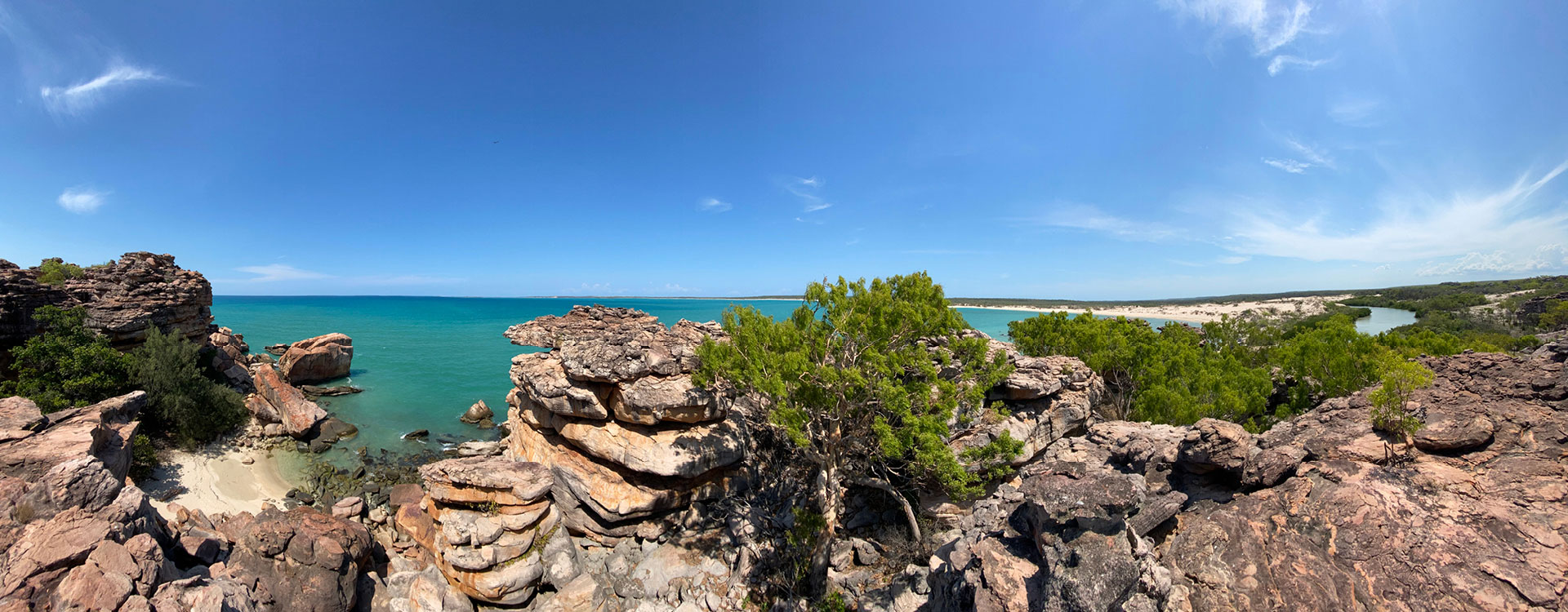
Economic Development and Leadership
Since 2012 until the present, the ALC Board has worked to a Strategic Plan that underpins a sustainable Future Groote economy. This is a combination of economic, social and cultural initiatives that work together as a holistic plan.
The essential goal of the Royalty Development Unit is to establish a foundation for a sustainable seafood export industry to underpin the economy post mining.
Central to this goal is ensuring the existing Anindilyakwa Mining Trust (AMT) is boosted by profits from the new Winchelsea mining operation to reach a point at which current 64-3 funded programs that uphold social and cultural programs can continue in perpetuity.
Surplus profits (after AMT needs are met) from the Winchelsea mining operation are agreed by the Traditional Owners to be directed into other small to large profit making ventures – in particular the resumption of seafood export which traditionally occurred for 900 years with Macassan’s seafarers.
The appetite for the responsible use of Royalty money is keenly felt by the individual members of ALC board, as noted by the high percentage of funds diverted into these projects, and away from what otherwise would be cash distributions to the Traditional Owners. The Board’s strategy recognises there is a community expectation that these funded activities and projects have to have a more noticeable positive impact on the lives of the community residents than cash distributions.
The Future Groote Strategy and members provide the framework for targeting areas of opportunity for a positive impact. The Future Groote Strategy is informed by the Local Decision Making Agreements. The RDU is also guided by the Economic and Community Development component of the ALC Corporate Plan, which requires it to assist and facilitate traditional owners in gaining access to resources which economically and socially develop their own groups.
Click here for more information about the Future Groote Strategy and 6 Local Decision Making Agreements.
